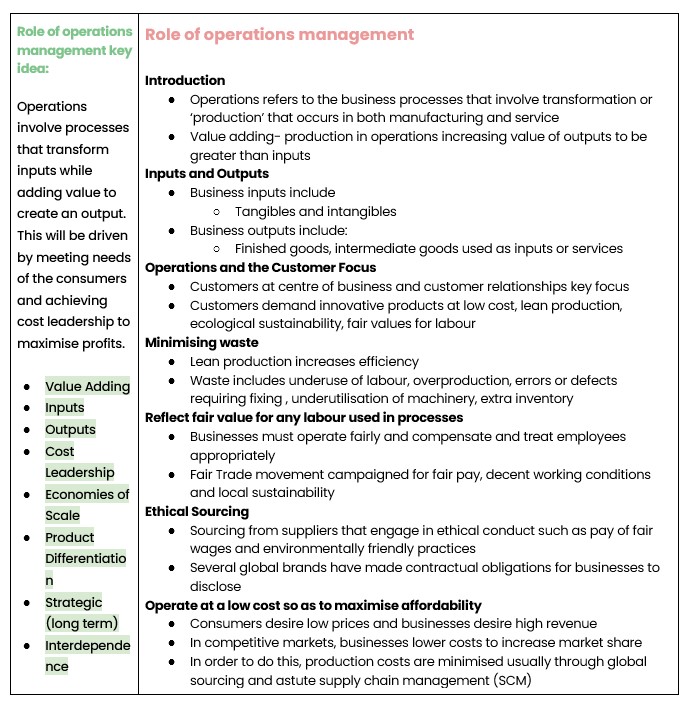HSC Business Studies Operations
Summary:
These detailed Operations notes are an invaluable resource for students studying the Operations topic in the HSC Business Studies course. Authored by a high-achieving student who achieved an impressive ATAR of 93.85 and ranked first in their course, these notes provide comprehensive coverage of the subject. Spanning 19 pages, the notes incorporate theory, examples, and diagrams to enhance understanding.
Covering essential areas such as production processes, quality management, technology, and global operations, these notes offer a thorough understanding of Operations principles and strategies. The inclusion of practical examples and diagrams facilitates the application of concepts to real-world scenarios.
Excerpt:
HSC Business Studies Operations
Role of operations management
Introduction
- Operations refer to the business processes that involve transformation or ‘production’ that occurs in both manufacturing and service
- Value adding- production in operations increasing the value of outputs to be greater than inputs
Inputs and Outputs
- Business inputs include
- Tangibles and intangibles
- Business outputs include:
- Finished goods, intermediate goods used as inputs or services
Operations and the Customer Focus
- Customers are at the centre of business, and customer relationships are a key focus
- Customers demand innovative products at low cost, lean production, ecological sustainability, fair values for labour
Minimising waste
- Lean production increases efficiency
- Waste includes underuse of labour, overproduction, errors or defects requiring fixing, underutilisation of machinery, extra inventory
Reflect fair value for any labour used in processes
- Businesses must operate fairly and compensate and treat employees appropriately
- The Fair Trade movement campaigned for fair pay, decent working conditions and local sustainability
Ethical Sourcing
- Sourcing from suppliers that engage in ethical conduct, such as payment of fair wages and environmentally friendly practices
- Several global brands have made contractual obligations for businesses to disclose
Operate at a low cost so as to maximise affordability
- Consumers desire low prices, and businesses desire high revenue
- In competitive markets, businesses lower costs to increase market share
- In order to do this, production costs are minimised, usually through global sourcing and astute supply chain management (SCM)


Reviews